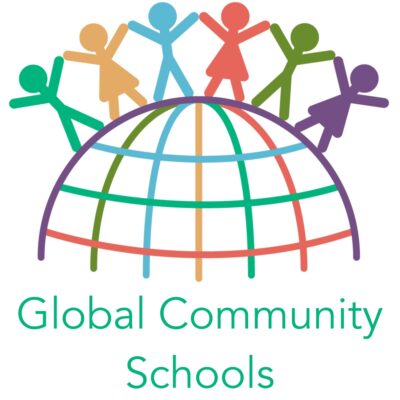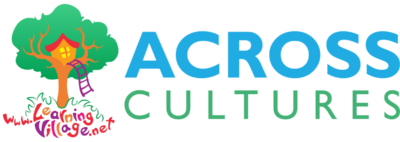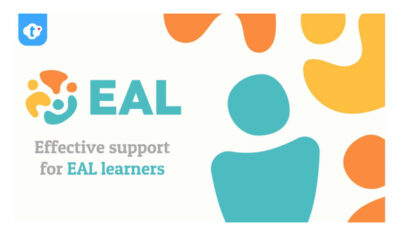Reframing Assessment for Multilingual Classrooms
Saturday, 22nd November 2025
In the UK, it is estimated that around 20% of school-age children use more than one language, many of whom are also new to learning in English. Assessment plays a crucial role in supporting academic and language development. Educational assessment for multilingual classrooms means moving beyond standardized narrow measures of attainment to approaches that value diverse languages and ways of communicating meanings as part of the learning process.
The NALDIC33 conference provides a space to share insights and practices that make assessment more equitable, inclusive and reflective of multilingual learners’ skills.
Two parallel formats
An in-person conference in Leeds. Cloth Hall Court, University of Leeds. Quebec St, Leeds LS1 2HA
An online conference where attendees will also be able to view in-person keynote speakers and enjoy online interactive presentations
Tickets
Registration deadlines
In-person: Monday, 10th November 2025
Online: Friday, 21st November 2025
Programme
Time |
Session |
|---|---|
| 9:00–9:30 | Registration and coffee |
| 9:30–11:00 | Welcome Opening Keynote: David Morrison Love and Constant Leung Sponsor presentations |
| 11:00–11:15 | Break |
| 11:15–11:45 |
|
| 11:45–12:15 |
|
| 12:15–12:30 | Free time for discussion |
| 12:30–1:45 | Lunch and AGM |
| 1:45–2:30 |
|
| 2:30–2:45 | Coffee break |
| 2:45–3:15 |
|
| 3:15–4:15 | Closing Panel discussion: Social justice and equity Drinks |
| 4:15 | End |
Download here the full programme:
Plenary sessions
Both plenary sessions will be streamed live to the online conference participants.
Keynote Presentation: Divergence, dialogue and learning- exploring ideas to reframe classroom assessment
David Morrison Love | University of Glasgow
 In the first part, David Morrison-Love will discuss the principles and practice of using assessment in classroom to promote learning:
In the first part, David Morrison-Love will discuss the principles and practice of using assessment in classroom to promote learning:
We know that assessment can all too easily become instrumental and performative in ways that tend to narrow classroom teaching and learning. This can happen for different reasons beyond just policy contexts. How we each think about assessment, its educational purposes, and its relationship with learning, shape how our own assessment practices develop. I will explore and relate two sets of ideas that can be helpful to move beyond narrowing and performative uses of assessment. Firstly, I will explore some differences between learning and performance and tease out some implications and reflective questions for classroom practice. Secondly, I will examine the concepts of convergent and divergent assessment. To illustrate these ideas in practice, I will briefly share insights and findings from a project with Welsh teachers and their pupils who are beginning to use them as part of curriculum reform. These findings reveal that, for these teachers, classroom assessment became more holistic, responsive, and meaningful, and was no longer about judgement. Language and dialogue became important to assessing in this way. I will conclude by reflecting on the idea of assessment as a dialogical process between the teacher, the pupil and what is being taught and learned.
 Constant Leung | King’s College London
Constant Leung | King’s College London
In the second part, Constant Leung will focus on teacher-led formative assessment in the classroom (also known as Assessment for Learning) with particular reference to language development:
Multilingual pupils who are learning and using English as an Additional Language are expected to learn curriculum content and English language at the same time. For teachers every curriculum activity is an opportunity to promote their pupils’ content-related language development in English and, where appropriate and possible, other languages. I will first discuss a set of practicable ideas drawn from UK and international research in formative assessment, content-based language learning, language mediation, multilingualism and translanguaging. After that I will turn my attention to some of the ways in which these ideas can empower teachers to develop pupil-sensitive assessment strategies and practices that can be adapted and applied in different areas of the school curriculum. Classroom examples will be used to support the discussion.
Afternoon Panel Discussion: Social Justice and Equity
 with Constant Leung, David Morrison Love & Declan Flanagan
with Constant Leung, David Morrison Love & Declan Flanagan
In this closing discussion the panel members will discuss their views and experiences of social justice and equity with regard to assessment. They will each reflect on how their own scholarship and practice engage with core issues raised at the conference as well as highlighting key areas for further work and development. Panel members will also answer questions from the conference, so please be sure to post your questions for them during the day (more details of how to do this will be provided during the conference).
In-person presentations
Workshop (hybrid)
NALDIC and Twinkl Collaboration Project: EAL and Multilingualism – Educational Principles
This is a discussion-based workshop exploring how principles of EAL and multilingual teaching can be effectively applied to curriculum support materials and content-based teacher assessment for EAL learners. Through a hands-on carousel of resources developed in partnership by Twinkl and NALDIC, participants will have an opportunity to engage with a sample of practical materials designed to support multilingual pupils in the classroom. This workshop is designed to offer an opportunity to share ideas on inclusive teaching for EAL learners within the mainstream curriculum.
Presentation 1
Prof Ros Mitchell | University of Southampton
School curriculum reform: The place of language(s) in UK schools
The UK school population is increasingly diverse (and multilingual), and it is clear that current education is not serving all children equally. However, education is a devolved matter in the UK, so that England, Scotland, Wales and Northern Ireland each have responsibility for their school curriculum. This session will briefly analyse and compare the current curricula and reform proposals, in terms of selected themes: top-down vs bottom-up curriculum control; curriculum breadth and depth; the knowledge-skills relationship; interdisciplinarity; assessment and accountability. The impact of these choices for aspects of language education will be reviewed, with a focus on responses to multilingualism (language awareness/ knowledge about language, English as an additional language, home/heritage/community languages, international languages). Discussion will focus on opening up the language(s) curriculum for the benefit of currently disadvantaged groups.
Presentation 2
Robert Coyle | Norfolk County Council
Assessing the Impact of Other Languages on KS2 Writing
Much of our assessment of children and young people with EAL focuses on early language acquisition. However, we know from research that first language can affect grammar and sentence structure and this can impact on the writing of more advanced EAL learners. Norfolk EAL Team ran a pilot intervention project to identify and address issues with writing in EAL learners that were working a close to expected level. This presentation will illustrate our project from assessment through intervention to outcomes and we will share the resources we developed along the way.
Presentation 3
Jenny Smith, Shabnam Shah, Alanna Collins | Sheffield Local Authority, EAL/New Arrivals Team
Assessment: A Local Authority Approach to Assessment for Multilingual Learners
As a Local Authority EAL/New Arrivals Team we have developed an assessment process that we work with schools and settings to implement to meet the needs of learners with English as an additional language. There are four steps to the assessment process. We have developed our own clear visual materials designed to gain a full and holistic picture of the child. This includes gathering background information and educational history competency and fluency in English and first language/s in addition to Underpinning the whole assessment process is family/carer involvement and the early and effective use of an interpreter.
Step1 – Profiles
The identity and language profile is a quick information gathering tool to use within the first few days of the learner’s admission into school. The use of visuals on the overview sheet and the supporting vocabulary is aimed to make the ’All About Me’ profile accessible and non-threatening for newly arrived learners. Completing this process with the learner, and parents/carers where appropriate, helps build important relationships early-on and should be shared with relevant staff to maximise understanding and potential from the outset.
Step 2 – Background
This first stage of the formal assessment is intended to gain a holistic view of the learner including competence in first language/s and therefore the use of an interpreter is vital.
Parents/carers are invited for a meeting to gather information including educational background, possible issues regarding health, learning etc.
Step 3 – Assessment
This stage of the formal assessment focuses on the vocabulary knowledge and the speaking, listening, reading and writing skills of the learner in English and their first language/s. The Assessment booklet is completed with the learner to assess their competency in English. The role of the interpreter is to give instructions in the first language and to encourage learner responses in the first language. This will allow for an informal judgement about age related skills in the first language.
Step 4 – Targets and Tracking
The report includes a baseline assessment mapped onto the national EAL assessment tool used by the school (NASSEA or Bell Foundation). Targets are set and identified support shared with school staff to inform planning and to be reviewed in pupil progress meetings.
Presentation 4
Danielle McKernan | Everway
AI & Inclusion: Empowering EAL Learners Through Assessment
AI and inclusive technology can transform assessment for multilingual learners, bringing their full linguistic repertoire into the classroom. This session explores practical tools that support multilingual understanding, scaffold formative tasks, and empower students to show what they know, not just what they can translate.
Together, we’ll explore examples of how digital rubrics, real-time feedback, and AI-powered scaffolds can shape inclusive pedagogy and foster a classroom culture where all languages are valued and reflected in everyday assessment routines.
Extending this inclusive approach into high-stakes summative assessments, we’ll discuss how JCQ-compliant tools which provide multilingual learners with equitable, independent access to external exams, levelling the playing field with accommodations that reflect their normal way of working. From classroom to exam hall, we will explore how to make assessment inclusive, accessible, and empowering—for every learner, in every language.
Presentation 5
Joanna Kolota | Trinity Academy Leeds
Peeling Back the Layers: The Ongoing Work of Assessing Multilingual Learners
In a transient inner-city secondary school in Leeds, as many as fifty newly arrived multilingual learners are admitted every academic year. For these students, robust assessment of English language proficiency is not only essential but also urgent: without a clear understanding of their linguistic repertoires, mainstream teachers face significant challenges in providing effective support.
This presentation will share practical approaches to the initial and ongoing assessment of newly arrived multilingual learners. Drawing on classroom-based practice and research-informed frameworks, I will explore assessment processes that value the learner’s entire linguistic repertoire, including their home languages, to build a more holistic profile of proficiency.
Key strands of the session will include:
-Construct and reliability of assessment: how to design and adapt teacher-led assessments that balance practicality with validity.
-Complexity of assessment in transient contexts: addressing the challenges of mobility, limited prior records and varied educational backgrounds.
-Formative assessment in practice: Using assessment for learning approaches to track progress, inform classroom strategies and adapt provision responsively.
The presentation will also reflect on the tensions between the absence of statutory summative assessment for EAL learners and the real, immediate demands of classroom practice, where pupils are continually assessed across all subject areas. Through case studies and examples, I aim to demonstrate that thoughtful, teacher-led formative assessment can be both manageable and transformative, enabling schools to move beyond ‘filling in the blanks’ approaches toward authentic recognition of multilingual learners’ strengths and needs.
Presentation 6
Anthea Wilson & Lauren Kearney | English Speaking Board (International)
Preparing EAL Year 4 learners for an externally assessed oracy qualification: the teachers’ perspective
Oracy development and assessment offers all learners the opportunity to speak and listen more effectively, and can be particularly effective for EAL learners working towards the same oracy assessment as their monolingual peers. This presentation describes a case study of 59 year 4 pupils at a community primary school in England, including 10 learning English as an additional language, who completed a structured oracy programme in preparation for the externally assessed ESB Entry Level Award in Speech (Entry 2). This is a summative speaking and listening assessment offered by English Speaking Board (International) Ltd, an Ofqual-regulated awarding organisation. The assessment is taken in groups, and each learner receives a personalised report identifying their strengths and some development points, which can be used to inform ongoing learning.
The case study used quantitative and qualitative data to evaluate the impact of the curriculum change and preparation for the assessment. Whilst all learners showed improvement in more than one descriptor, the EAL learners made more progress than their peers in some key areas that frequently present challenges to language learners, e.g. actively participating in collaborative conversations, speaking audibly to/in front of a small group, giving well-structured descriptions. Teachers also noted an improvement in learners’ ability to organise their ideas and pupil relationships.
In this presentation, we illustrate the programme of teaching and learning, highlighting the resources that teachers’ used, describe the summative assessment content and learning objectives and discuss the role of oracy as a complement or alternative to language instruction in developing communication skills.
Presentation 7
Sophie Cocault | Full Service Community Network at St Mary’s University College
Self and peer assessment strategies for the multilingual classroom
One of the main purposes of assessment is to identify how much learning has taken place, yet assessment practices traditionally used in UK classroom tend to leave multilingual students at a disadvantage and may not reflect what students are capable of. Assessment remains a predominantly monolingual practice where home languages are not seen as a learning resource and often lacks cultural responsiveness to the learners’ backgrounds. What’s more, assessment practices are traditionally individual and fail to empower students to take ownership of their own learning.
This practical session explores activities for self and peer assessment that can easily be used in the multilingual classroom. The focus of this session is on formative assessment strategies that develop students’ awareness of their own learning and increase collaboration among learners. The multilingual assessment practices presented in this session integrate content and language. Self and peer collaborative assessment practices have been shown to remove some of the psychological barriers that students may experience when assessed individually by monolingual teachers, and as a result, students often perform better, thus giving teachers a more accurate reflection of their knowledge and skills.
The activities in this session provide learners in both primary and secondary settings the opportunity to practice receptive and productive language, in English and/ or in their home language. They are mapped onto students’ curriculum, with clear success criteria that include language and content, e.g. ‘I can use past tenses to tell a traditional tale from my country’, ‘my friend can identify the stages of photosynthesis’. Through the self and peer assessment activities, students are given the opportunity to practice language for social, communicative purposes (BICS), e.g. ‘your go’, ‘give me a clue please’, ‘nice one!’, as well as more academic tier 2 language (CALP) which both monolingual and multilingual students often find challenging.
Presentation 8
Helen Wood | Password English Language Testing
Insights from summative writing: turning exam scripts into formative assessment for multilingual learners
Summative writing assessments are often treated as the end point – a grade in a mark book, a report to parents, or an exam board certificate. Yet, for multilingual learners, those same scripts can provide rich formative insights into language development and the disciplinary literacy required for success in specific subjects, if teachers know how to look.
This presentation will demonstrate practical approaches to analysing extended writing produced by pupils with EAL in summative contexts (for example, baseline assessments, GCSE/IGCSE tasks). Drawing on authentic learner scripts, it will show how teachers can move beyond grades to identify specific linguistic features that underpin progress in both English and subject learning.
Key themes include:
• Spotting the difference between everyday language and academic register, and how this affects success in curriculum tasks
• Identifying vocabulary range and collocational patterns using free and low-cost tools aligned to international frameworks
• Recognising common developmental ‘sticking points’ in grammar and discourse that hold learners back
• Using these insights to set precise, actionable goals for future teaching and learning
By reframing summative data as a source of formative information, teachers can build a more accurate picture of multilingual learners’ needs, and plan interventions that make a tangible difference across subjects.
This session will provide practical take-away strategies for classroom teachers and EAL specialists alike, enabling them to integrate assessment for learning into their everyday practice.
Presentation 9
Dr Declan Flanagan | Dublin City University
Challenging the ‘Deserving Migrant’: Reassessing Language and Success Narratives in Multilingual Classrooms
This research critically examines how assessment practices within EAL and higher education reflect and reproduce neoliberal ideologies, particularly in relation to multilingual learners. Employing Critical Discourse Analysis (Fairclough, 1992), the study deconstructs a media portrayal of a Syrian refugee’s educational trajectory—from limited English proficiency to academic success—revealing how assessment is framed within broader narratives of economic utility, resilience, and meritocracy. Through Fairclough’s three-dimensional framework, the analysis explores the textual, discursive, and socio-cultural dimensions of this narrative, highlighting how language proficiency is commodified and positioned as a prerequisite for labour market participation and social legitimacy. This framing renders assessment a gatekeeping mechanism that privileges self-reliance and devalues the structural inequalities that shape access to language education. Multilingual learners are positioned as “deserving” only when they align with neoliberal expectations of individual achievement and economic contribution. In this context, English is constructed not as a linguistic right but as a form of human capital. Such representations obscure the material consequences of funding cuts, restrictive migration policies, and the institutional reliance on standardised assessments such as GCSE English and IELTS. This study argues for a reframing of assessment as a socially and politically embedded practice. It calls for a shift away from deficit-based, decontextualised models of evaluation toward approaches that recognise the full linguistic repertoires and lived experiences of multilingual learners. By exposing the ideological underpinnings of current assessment regimes, this research contributes to the development of more inclusive, critically reflective practices that centre educational equity and resist assimilationist imperatives. It challenges educators, policymakers, and researchers to reconceptualise assessment not as a tool of compliance but as a transformative practice that affirms linguistic diversity and supports meaningful access to education.
Presentation 10
Dr Gail Forey | University of Bath
Reframing Exam Genres: Disciplinary Literacy in High-Stakes Secondary Assessments
At secondary school, all students, including multilingual learners, face the writing demands of high-stakes exams such as iGCSE/GCSE, A Level, and IB. These exams are particularly challenging for multilingual learners and act as gatekeepers to future education and employment (Education Endowment Fund, 2021). Drawing on Systemic Functional Linguistics (SFL), genre theory, disciplinary literacy, and corpus linguistics, this paper presents initial findings from the Developing Disciplinary Literacy: The British Academic Written English Secondary School (BAWESS) Corpus – The BAWESS Project. In this paper we discuss the potential genres embedded in exam questions in two disciplines – History and Biology.
The BAWESS Project is the first discipline-specific corpus of authentic student exam-practice texts, designed to support disciplinary literacy in schools. Understanding genre as “staged goal-oriented purposeful activity that people engage in as members of their culture” (Martin, 1984:25) is central to supporting writing across the curriculum (Forey, 2020; Forey & Cheng, 2019; Derewianka & Jones, 2023). One underexplored area of formative assessment is how students interpret the genre required based on command words/phrases in exam questions.
We developed a corpus of exam questions, specifications, mark schemes, and model answers from exam boards, and analysed the types of questions in History and Biology across A-level, GCSE/iGCSE, and IB. Using corpus linguistics, we identify ‘power words’ in exam questions to illuminate the ‘power grammar and power composition [genres]’ (Martin, 2013) demanded by each discipline.
Our findings offer insights into the genres associated with different disciplines and how these can inform formative assessment. Understanding the genre demands embedded in exam questions can enhance awareness among teachers, learners, and researchers, supporting disciplinary literacy practices in secondary school exams.
Presentation 11
Ewelina Urszula O’Donnell | St.Francis’ College, Letchworth
Making Macbeth Accessible: Formative Assessment Strategies to Support EAL Learners in GCSE English
Shakespeare’s Macbeth is a demanding text even for fluent English speakers, with its complex themes, nuanced characters, and archaic language. For learners of English as an Additional Language (EAL), these challenges are amplified. This presentation explores how a Year 9 English unit on Macbeth—designed as an introduction to the play in preparation for Key Stage 4 study and mock examinations—was adapted to ensure accessibility and inclusion for all learners. These adaptations proved highly beneficial not only for EAL students but also for those with lower prior attainment.
Drawing on resources from the Bell Foundation, alongside original unit overviews, scaffolded activities, and classroom PowerPoints, the scheme of work was designed to build cultural awareness, develop Tier 2 vocabulary, and strengthen analytical writing skills. At the same time, it enabled learners with lower language proficiency to engage meaningfully with Shakespeare’s text.
Practical formative assessment strategies included questioning, think-pair-share, role play, visual aids, scaffolded writing frames, games, and collaborative tasks. These approaches not only supported comprehension but also allowed learners to act on feedback, gain confidence, and work towards success in summative exam-style assessments.
The session will demonstrate how thoughtful curriculum adaptation, combined with formative assessment, allows EAL learners to explore universal themes such as masculinity, power, kingship, and leadership. It will highlight practical ways to support learners in developing both linguistic and analytical skills, and how these strategies can be adapted for different levels of proficiency.
Presentation 12
Cecile DeCat | University of Leeds
Informing teachers’ expectations when assessing English proficiency of EAL pupils
This presentation will address 4 questions relevant to the assessment of EAL pupils’ language competence. Each question rests on research evidence, which will be summarised in the presentation. (1) It takes 4 to 6 years for a child new to English to catch up with their monolingual peers in that language, with substantial variation between individuals. The most reliable predictors of the speed of acquisition are the amount of exposure to English and the quality of that exposure. How can teachers obtain reliable information about these two aspects, to inform their expectations as to the level of proficiency a pupil should have achieved at a particular point in time? (2) In the early stages of education, proficiency in the home language can act as a scaffold for English. How can teachers access reliable information about home language proficiency if they are not themselves familiar with the relevant languages? (3) Language impairment is difficult to detect in EAL pupils, because it is impossible for non-specialists to distinguish an apparent delay from a disorder. Children at risk of a language disorder need to be referred for specialist assessment by a speech and language therapist as early as possible, to identify the type of support or intervention they need. How can teachers know which children should be referred? (4) Obtaining language and education background information about new-to-English pupils can be difficult, especially if the parents or caregivers have limited proficiency in English. How can teachers obtain this information?
A simple solution to these four questions is offered by Q-BEx: a free and secure online questionnaire available in 32 languages, which automatically produces individual reports (in English). The reports also contain research-informed guidance on how to interpret the information provided. Ease of use and customisability will be demonstrated in the presentation.
Online presentations
Presentation 1
Dr Jennifer Eddy | Queens College, City University of New York
Project-Based Assessment for Learning: Reframing Design with and for Multilingual Learners
How can formative, project-based assessment empower multilingual learners to take ownership of their learning and act as mediators across languages, cultures, and subjects?
This workshop explores the teacher’s role as designer and the learner’s role as mediator within project-based assessment. Grounded in multilingual, multicultural classrooms, we examine how well-crafted, project-based tasks support both formative assessment and deeper learning. Learners are positioned as active agents—solving problems, creating products, and making language and culture both visible and accessible to others.
Drawing on classroom examples from England, Wales and the United States, we’ll share how multilingual pupils engage with transdisciplinary themes and develop confidence in using the languages they already own to communicate, connect and reflect. These projects not only demonstrate progression and proficiency but also offer authentic insight into pupils’ cultural perspectives, linguistic strengths and capacity for collaboration.
Participants will receive templates and tools to design their own assessments that align with curricular goals while honouring linguistic and cultural diversity. Whether working individually or in groups, learners gain the opportunity to show what they know in creative, meaningful ways—extending the impact of classroom learning into community, career and life.
Presentation 2
Emily Hamblin | UK Resettlement Team, North Somerset Council
Holistic well-being needs of resettled children
This presentation will draw on the speaker’s experience of supporting refugee and resettled children with EAL across multiple primary, secondary and special schools and support services as an EAL, SEND and SEMH specialist advisory teacher across London, Bristol and North Somerset.
It will discuss practical considerations for inclusion leads and teachers to support the holistic well-being and pastoral needs of refugee and resettled children with EAL through individualised formative assessment. The children’s individual transition, safety, inclusion, belonging, emotional well-being and pastoral needs will be discussed to enable staff to support the child to thrive and reach their potential in all areas, ensuring they are ready to learn in the classroom. Participants will be given a flexible framework to develop teacher-led, bespoke, individualised formative assessment to support targeted well-being interventions for the refugee child’s holistic needs – ensuring they target the priority areas. There will be the opportunity to make a holistic well-being plan for a child the participant knows.
By the end of the presentation participants will be motivated and feel confident to recognise and assess the holistic needs of refugee and resettled children including those with complex needs. This will ensure that the children will thrive and achieve success in school in all areas and have hope, dreams and aspirations for their future.
Presentation 3
Sarah Guinon | Australian International School, Hong Kong
Show Me What You’ve Got: EAL Learners on Assessments Their Way
This study explores the voices of EAL students regarding their preferences in how they demonstrate learning. Recognising that assessment is not one-size-fits-all, this project centres student voice through a poll-based approach to understand what formats and conditions best support EAL learners in expressing their knowledge.
The poll was conducted across a diverse group of EAL students and included questions on several key areas: preferred modes of assessment (e.g., presentations, written tests, creative projects), the role of home language in assessments, and vocabulary integration (e.g., separate vocabulary sections vs. embedded challenging vocabulary). Students were also asked about their comfort with collaborative vs. individual assessments, and their views on digital vs. paper-based formats (See Saw).
This proposal aims to present the findings and discuss how student feedback can inform more inclusive, responsive assessment practices. It will highlight the importance of co-constructing assessment with learners and suggest practical strategies for integrating student voice into formative and summative assessment design.
By focusing on EAL students’ perspectives, this study contributes to a growing body of work advocating for learner agency and culturally responsive pedagogy in assessment. It invites educators to rethink how we assess not just what students know, but how they best show it.
Sponsors and Exhibitors
Platinum Sponsor & Exhibitor: Password
 Developed by world-leading experts in English language assessment, CRELLA, Password tests are used by schools, in the UK and internationally, to evaluate their multilingual students’ ability to access mainstream curricula delivered in English. Research shows that proficiency in English is pivotal to attainment in learners with EAL and the key predictor of their educational outcomes. Password’s Pupil English tests evaluate language proficiency within the social and academic context of the school. They are aligned to an internationally recognised standard which values plurilingualism and encourages learners to exploit all their linguistic resources to make progress – the CEFR. Password results provide vital contextual information to interpret other school assessment data, or to establish a baseline proficiency in English descriptor from which to plan support and track progress. Our user-friendly platform, gives schools easy access to accurate, reliable and speedy results, using secure online tests operated under their own control and school brand.
Developed by world-leading experts in English language assessment, CRELLA, Password tests are used by schools, in the UK and internationally, to evaluate their multilingual students’ ability to access mainstream curricula delivered in English. Research shows that proficiency in English is pivotal to attainment in learners with EAL and the key predictor of their educational outcomes. Password’s Pupil English tests evaluate language proficiency within the social and academic context of the school. They are aligned to an internationally recognised standard which values plurilingualism and encourages learners to exploit all their linguistic resources to make progress – the CEFR. Password results provide vital contextual information to interpret other school assessment data, or to establish a baseline proficiency in English descriptor from which to plan support and track progress. Our user-friendly platform, gives schools easy access to accurate, reliable and speedy results, using secure online tests operated under their own control and school brand.
Gold Sponsor & Exhibitor: Across Cultures
Across Cultures offers a world-renowned service that partners with teachers to share the knowledge, skills and resources needed to successfully support their language learners with EAL, low-level literacy and SEND needs within the demands of an evolving world.
Services include:
- Learning Village, a blended EAL vocabulary, language structure and reading programme for new to English and low-level literacy learners from 6-11 and 12-16 years old.
- Community Village, which offers English learning for school community engagement. Designed for multilingual families of EAL learners.
- AssessEP, an English Proficiency tool to understand a learner’s current English proficiency performance and provide ongoing feedback on progress.
- EAL Framework Process, which aims to provide teachers with the skills and resources needed to successfully support language learners within the demands of the curriculum and of a multilingual world.
- A complimentary EAL professional development service
- Consultancy
Gold Sponsor & Exhibitor: Twinkl EAL
At Twinkl EAL, we celebrate multilingualism and foster inclusivity with expertly crafted resources. With over 50 years of combined experience in EAL teaching and leadership, our team ensures that users of EAL at all proficiency levels feel supported in their learning journey. Build an enriching curriculum and support mainstream lessons with resources you can count on – accessible for all.
Versatile Content – Dual-language, translated resources, and effective scaffolding.
Easy to Teach – Tasks blend effortlessly with lessons.
Open Doors – Create welcoming environments that help learners reach their potential.
Over 22 Languages – Broad, diverse, and regularly updated.
Tried and Tested – Affordable, accessible, crafted by experienced EAL specialists.
Educators around the globe can build confidence and skills through podcasts, online CPD, networking meetings, and a supportive social community – empowering your EAL learners to thrive and succeed in their educational experiences.
Exhibitor: Library 4 Multilinguals
 Literacy is what allows children to not only learn more and get indulged into captivating stories, but it is the tool that helps them truly connects with their heritage. Library 4 Multilinguals Ltd supports children and the adults in their lives to develop literacy in home languages in a fun, engaging, and purposeful way.
Literacy is what allows children to not only learn more and get indulged into captivating stories, but it is the tool that helps them truly connects with their heritage. Library 4 Multilinguals Ltd supports children and the adults in their lives to develop literacy in home languages in a fun, engaging, and purposeful way.
Our publications include:
Book for parents: “The Parents’ Guide to Raising Multi-literate Children”
Books for pre-teens and teens: “In Search of the Lost Words – A Bilingual Time Travel Adventure”, “My Multilingual Diary” and “How to Become a Multilingual Superhero”.
School author visit:
Invite Yoshito Darmon-Shimamori to your school for a visit, where he will share with your students the incredible benefits languages and cultures can bring into their lives. He will also help students discover their multilingual superpowers. This author visit package comes with workshops for parents and teachers, as well as many resources to explore multilingualism and multiculturalism in a fun way!
Exhibitor: Global Community Schools
 We’ll tell you ours, if you tell us yours! What’re your top ingredients for transformative multilingual schooling? We’re selling our inspiration for free in an ideas exchange. We’re looking for achievable, impactful, sustainable actions, large or small, that celebrate, engage, achieve academic success and build cohesive diverse communities for the future.
We’ll tell you ours, if you tell us yours! What’re your top ingredients for transformative multilingual schooling? We’re selling our inspiration for free in an ideas exchange. We’re looking for achievable, impactful, sustainable actions, large or small, that celebrate, engage, achieve academic success and build cohesive diverse communities for the future.
How do you celebrate heritage languages and cultures?
Can you improve attendance?
Do you identify learning needs on admission?
Perhaps you have incredible oracy strategies?
Do you close reading fluency gaps promptly with age-appropriate materials?
Can you give confidence to families to help their children to read?
Bring a photo, share a website, scribble a note!
Ideas and enthusiasm are free. Most resources will also be free by email, or you can take photos. If you choose to purchase any printed resources, at least 50% of our profit will go to the Malala Fund. Here’s one of our freebie favourites: try searching for ‘Unite for Literacy’. From the authors of CGP’s EAL Workbooks and FastTrack 14 Phonics, available on Amazon
Member only content
The remaining content on this page is available to members only.
To access it and join NALDIC, click the button below.
or if you are a member...




